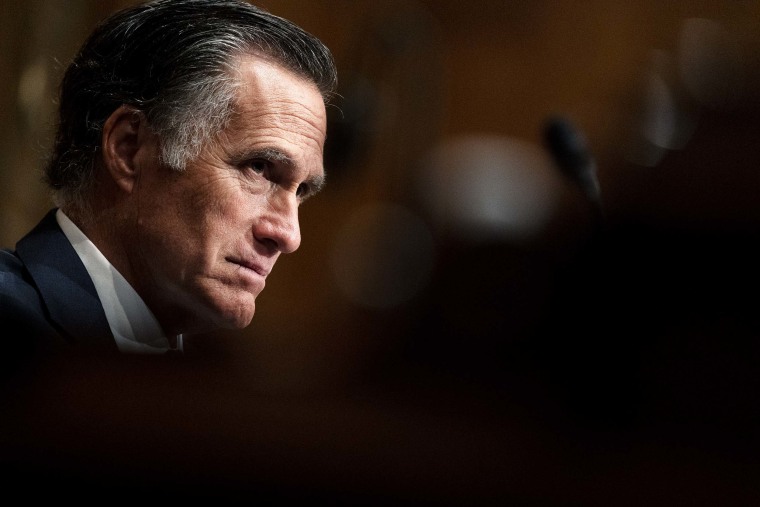Sen. Mitt Romney, R-Utah, has enjoyed a stream of positive press over the last week praising him for his 2012 comments warning about the threat posed by Russia.
During a CNN interview leading up to the 2012 presidential election, Romney — the Republican nominee at the time — said Russia is America’s “No. 1 geopolitical foe,” an allegation he made because “they fight every cause for the world’s worst actors.”
All this praise ignores Romney’s own role in empowering the Russian government.
After Russia invaded Ukraine last week, Romney’s defenders resurfaced the quote along with remarks from Romney’s 2012 debate against then-President Barack Obama, in which Obama told Romney the terrorist group Al Qaeda posed a greater threat to the United States than Russia at the time.
“The 1980s are now calling to ask for their foreign policy back,” Obama had said, mocking Romney's answer.
For context, Obama’s comments came at a time when the U.S. had more than 77,000 troops in Afghanistan and was 10 years into a "war on terrorism" that eventually became the longest war in U.S. history. Claiming the targets in that war were America’s greatest geopolitical foe seems, to me, less a flub and more an essential justification a president might make for putting thousands of troops in harm’s way.
Nonetheless, multiple outlets — and Romney himself — have pointed to Russia’s invasion as evidence he was right in retrospect. “The ‘80s called’ and we didn’t answer,” Romney said in a statement last week.
Even Rep. Ted Lieu, D-Calif., credited Romney for his stance from more than 10 years ago. “This action by Putin further confirms that Mitt Romney was right when he called Russia the No. 1 geopolitical foe,” Lieu told CNN last week.

But all this praise ignores Romney’s own role in empowering the Russian government. He initially fawned over then-President-elect Donald Trump, who demonstrated incomparable servility to the Kremlin. In 2016, as Romney sought to become Trump’s secretary of state, he was extremely complimentary toward Trump when the two met for dinner during the presidential transition.
After the meeting, Romney said that Trump shared a “message of inclusion and bringing people together," that he’d been “impressed” by Trump’s transition effort, and that America’s “best days are ahead of us.” And all of that praise came months after Trump had openly called on Russia to interfere in the 2016 election. It also came after Romney himself had reportedly warned fellow Republicans about the danger Trump posed to the country.
We know what behaviors this type of sycophantic treatment unleashed. Once in office, Trump set out to accomplish all sorts of pro-Russian aims, including his attempts to destroy NATO and withhold critical aid from Ukraine.
With that in mind, any praise for Romney’s Russia stance is incomplete unless it acknowledges his track record of being an opportunist with a seemingly ever-shifting sense of morality.
